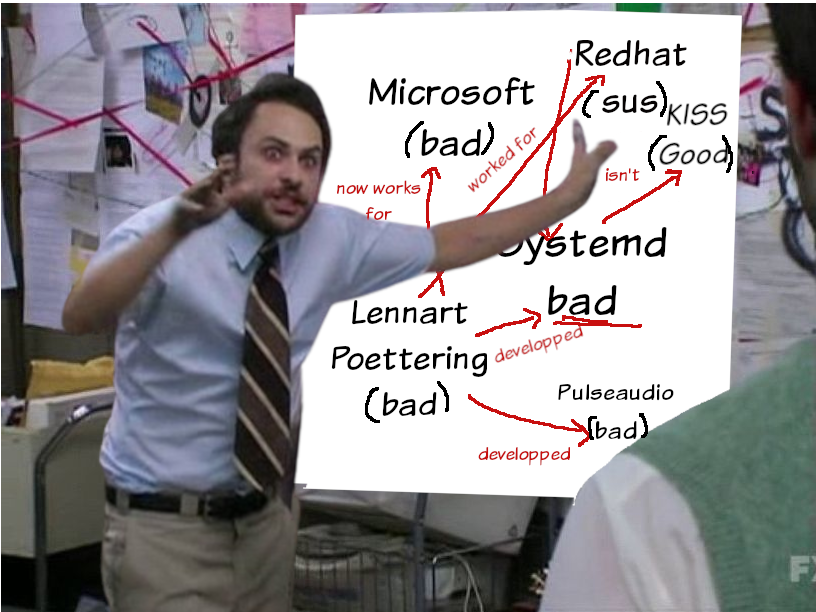this post was submitted on 07 Mar 2024
4 points (100.0% liked)
linuxmemes
21355 readers
1264 users here now
Hint: :q!
Sister communities:
Community rules (click to expand)
1. Follow the site-wide rules
- Instance-wide TOS: https://legal.lemmy.world/tos/
- Lemmy code of conduct: https://join-lemmy.org/docs/code_of_conduct.html
2. Be civil
- Understand the difference between a joke and an insult.
- Do not harrass or attack members of the community for any reason.
- Leave remarks of "peasantry" to the PCMR community. If you dislike an OS/service/application, attack the thing you dislike, not the individuals who use it. Some people may not have a choice.
- Bigotry will not be tolerated.
- These rules are somewhat loosened when the subject is a public figure. Still, do not attack their person or incite harrassment.
3. Post Linux-related content
- Including Unix and BSD.
- Non-Linux content is acceptable as long as it makes a reference to Linux. For example, the poorly made mockery of
sudoin Windows. - No porn. Even if you watch it on a Linux machine.
4. No recent reposts
- Everybody uses Arch btw, can't quit Vim, and wants to interject for a moment. You can stop now.
Please report posts and comments that break these rules!
Important: never execute code or follow advice that you don't understand or can't verify, especially here. The word of the day is credibility. This is a meme community -- even the most helpful comments might just be shitposts that can damage your system. Be aware, be smart, don't fork-bomb your computer.
founded 1 year ago
MODERATORS
you are viewing a single comment's thread
view the rest of the comments
view the rest of the comments

The argument is basically that it does too much and as the motto of Unix was basically "make it do 1 thing and that very well", systemd goes against that idea.
You might think it is silly because what is the issue with it doing many things. Arguably, it harms customization and adaptability, as you can't run only 2/3 of systemd with 1/3 being replaced with that super specific optimisation for your specific use case. Additional, again arguably, it apparently makes it harder to make it secure as it has a bigger attack surface.
Sustemd is modular though, you don't have to use every subsystem. The base init system and service manager is very comprehensive for sure.
And funnily enough, the kernel doesn't follow the unix philosophy either as far as I know.
I have heard that before in a joke setting, I would love to hear genuine arguments for and against it.
The debate is as old as Linux itself, and well documented.
It doesn't seem to be a debate. "Microkernels are better" "yes but I don't have the time for it" but thanks
At a high level, microkernels push as much as possible into userspace, and monolithic kernels keep drivers in kernel space
There are arguments for each e.g. a buggy driver can’t write into the memory space of another driver as easily in a micro kernel, however it’s running in the same security level as userspace code. People will make arguments for both sides of which is more secure
Monolithic kernels also tended to be more performant at the time, as you didn’t have to context switch between ring 0 and ring 1 in the CPU to perform driver calls - we also regularly share memory directly between drivers
These days pretty much all kernels have moved to a hybrid kernel, as neither a truly monolithic kernel nor a truly micro kernel works outside of theoretical debates